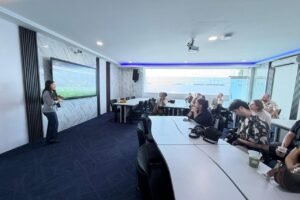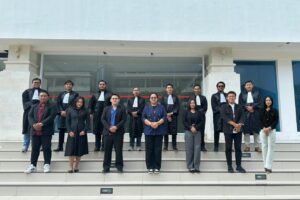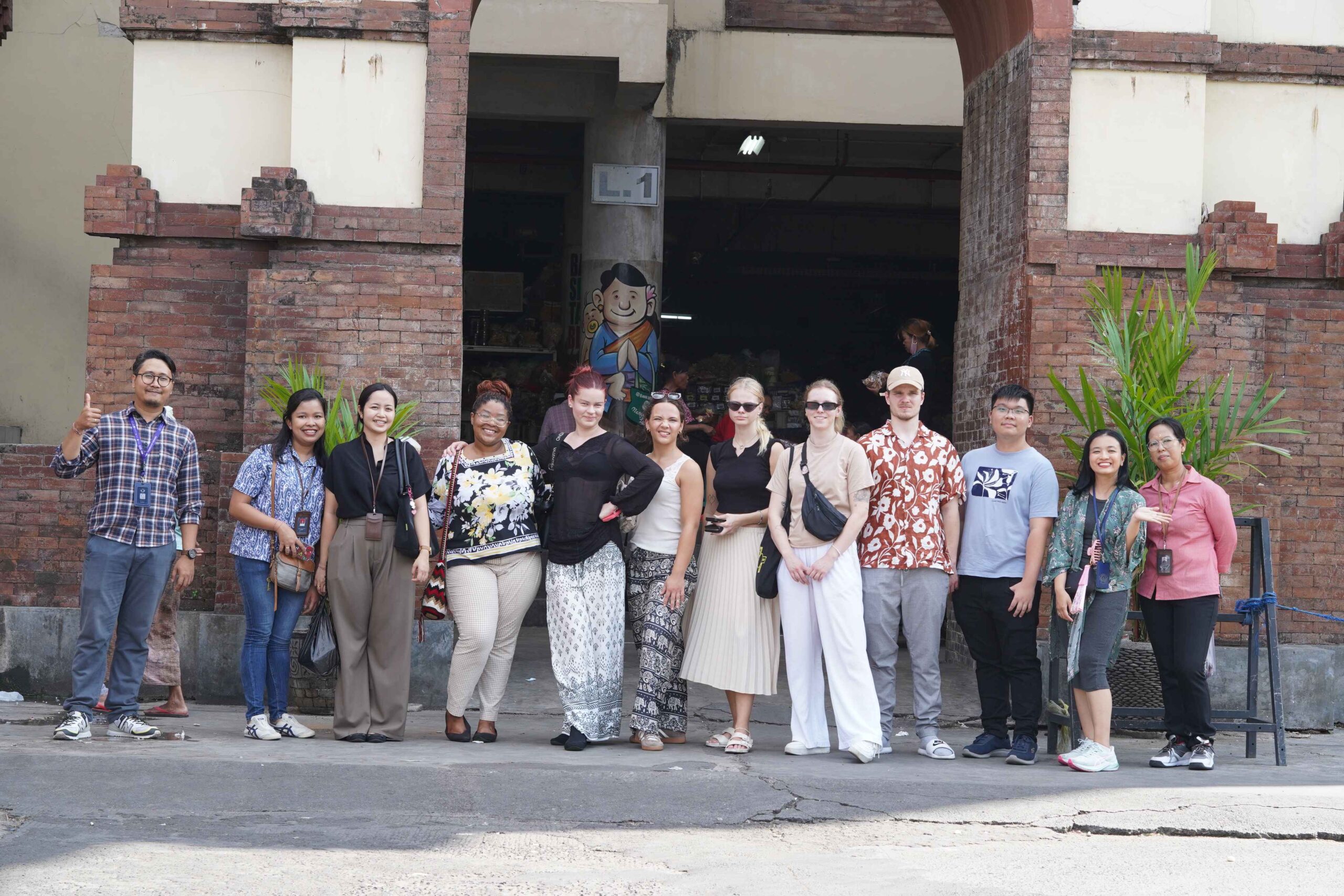
Bali Beyond Borders 2024: Exploring Language, ASEAN Economy, and Local Wisdom
Denpasar, November 5, 2024 – The second day of the Bali Beyond Borders program continued with an interactive learning session covering two important topics: Introduction to Bahasa and The Economy of ASEAN. In the first session, Introduction to Bahasa, international students were introduced to commonly used Indonesian phrases for daily communication. This session was specifically designed to help participants understand and master basic expressions that would be useful for interacting in Indonesia, while also offering an introduction to the cultural aspects tied to the language. The students were highly enthusiastic as they practiced simple Indonesian expressions, which are expected to deepen their understanding of the local culture.
The next session focused on The Economy of ASEAN, where students were introduced to the ASEAN community as a whole. The session provided insights into the economic structure of the region and the various challenges faced by ASEAN countries in navigating globalization and regional economic development. This activity represents the implementation of Asta Cita point number 2, which is to strengthen the national defense and security system and promote national self-reliance through food, energy, and water self-sufficiency, as well as the development of the creative economy, green economy, and blue economy. All students had the opportunity to discuss ASEAN’s key role in the global economy and how member countries collaborate to create more inclusive and sustainable economic growth. Interestingly, the session also included an introduction to political dynamics and socio-cultural aspects within the ASEAN region. Participants learned how political dynamics among ASEAN countries impact economic stability and regional integration. Additionally, socio-cultural topics such as cultural, linguistic, and religious diversity were discussed, highlighting how ASEAN, as a pluralistic community, is able to maintain harmonious and productive cooperation despite its differences.
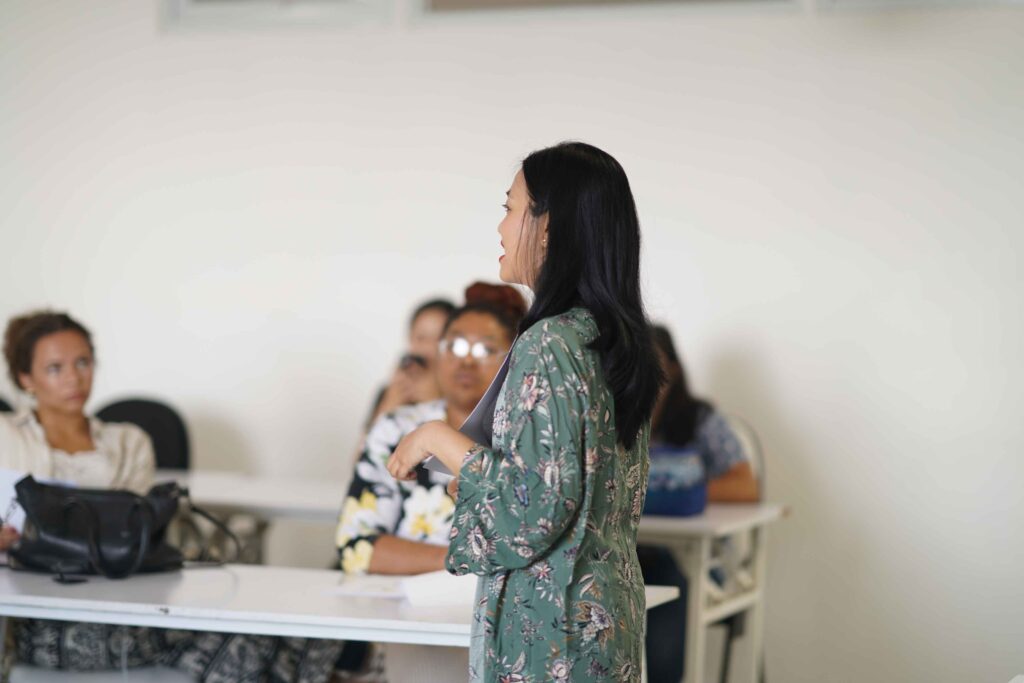
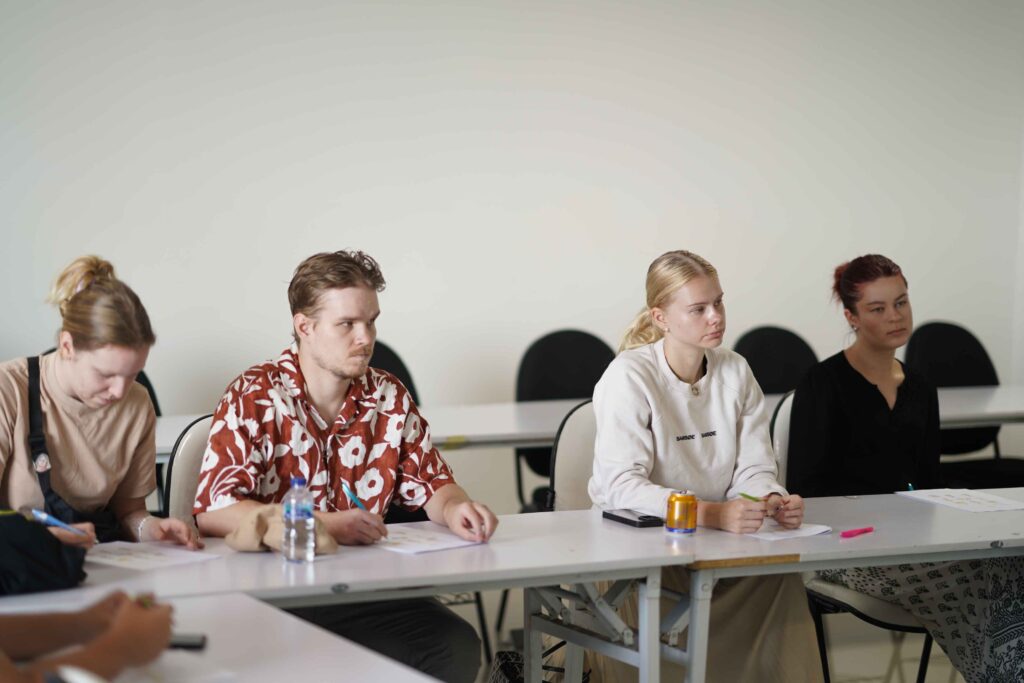
The day’s learning was concluded with a visit to one of Bali’s largest traditional markets, Pasar Kumbasari, located in Denpasar. This visit provided students with an opportunity to directly apply what they had learned in previous sessions. It also gave them the chance to observe how a traditional market operates and the important role it plays in the local economy. At Pasar Kumbasari, students were able to interact with vendors, explore a variety of unique Balinese products, and gain deeper insights into aspects of life that might be difficult to grasp through classroom learning alone. Students not only learned about business practices but also the social values that underlie interactions within the Balinese community. As a result, the visit served as a bridge between academic learning and practical experience, reinforcing the students’ understanding of the importance of local wisdom and microeconomics in maintaining cultural and economic sustainability in the region.
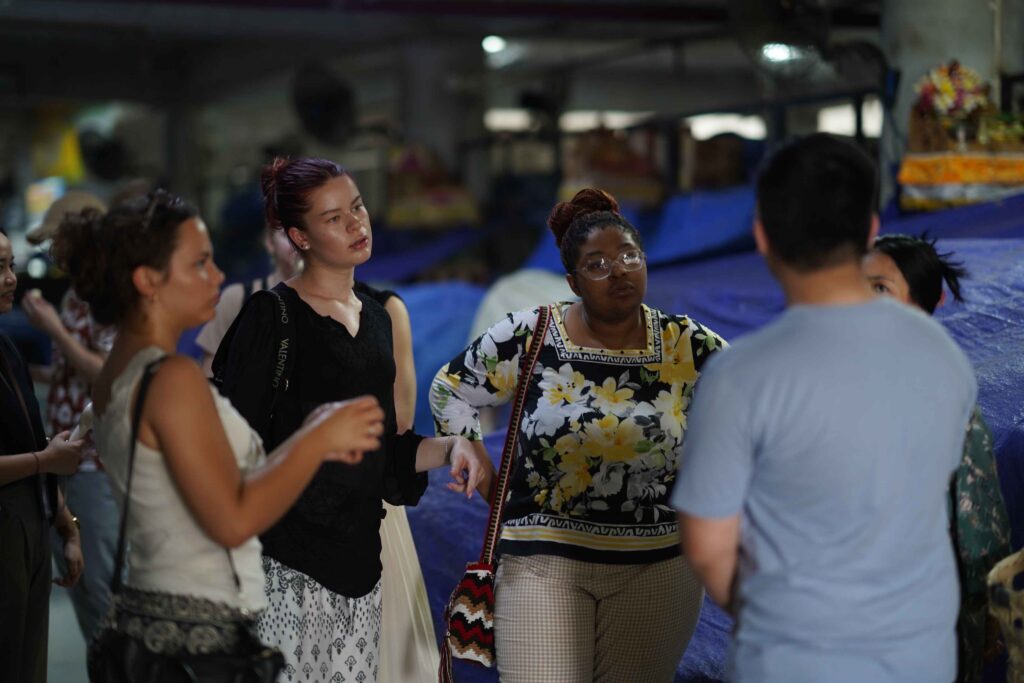
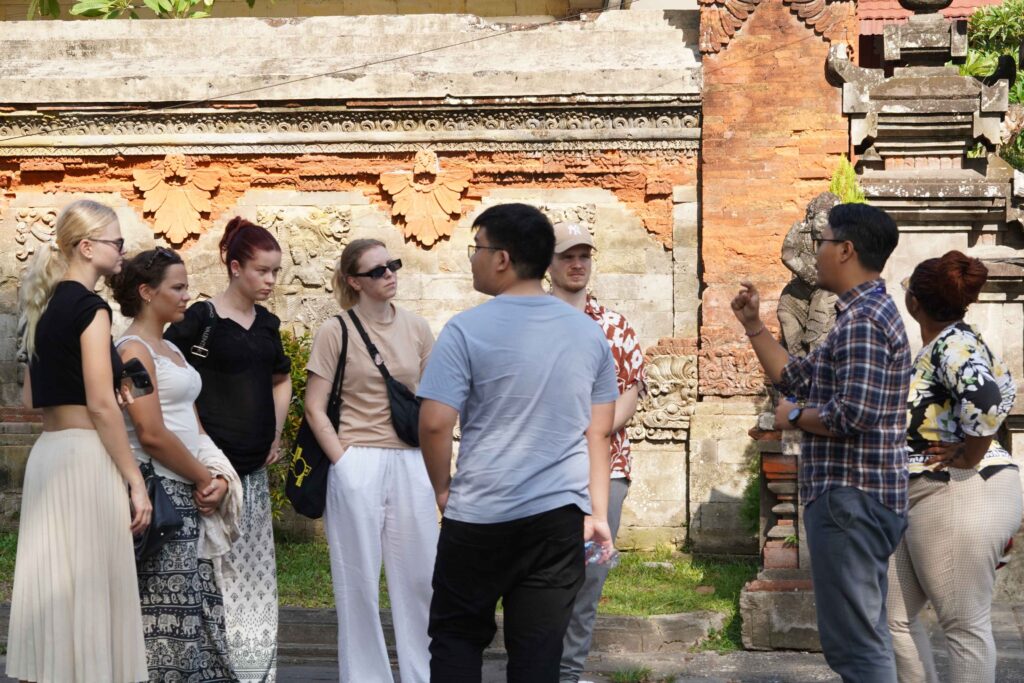
Todays activities also contributes to achieving several Sustainable Development Goals (SDGs), particularly SDG 4 (Quality Education) and SDG 8 (Decent Work and Economic Growth). Through the teaching of Bahasa Indonesia and understanding of the ASEAN economy, participants are not only expanding their academic knowledge but also acquiring practical skills highly relevant in the ever-changing global context. The learning sessions focused on regional economic dynamics and socio-cultural integration help students understand the challenges and opportunities in creating inclusive and sustainable economic growth, which aligns with the SDG 8 agenda. Moreover, the visit to Pasar Kumbasari illustrated how the microeconomic sector and local wisdom play an essential role in maintaining social and cultural sustainability, supporting the principles of sustainable economics and community empowerment. Thus, this program not only provides quality education but also strengthens international collaboration that drives equitable and sustainable economic development.

